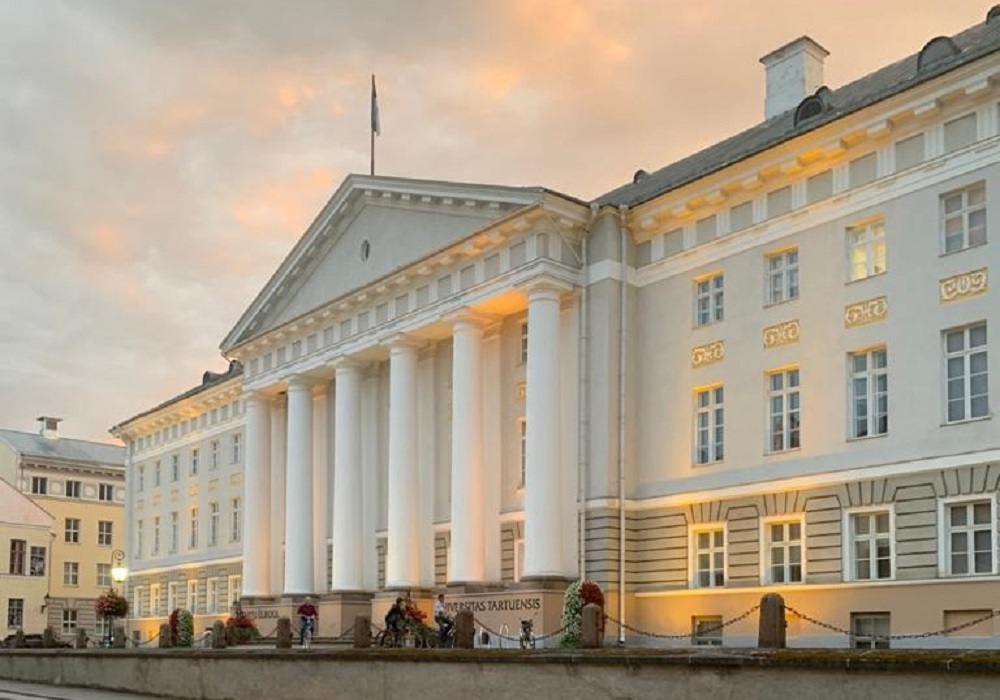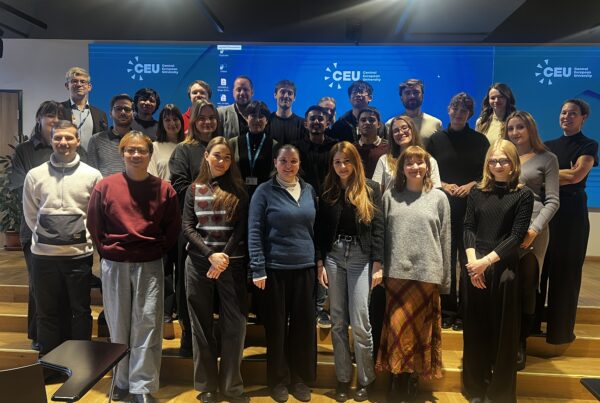
January 2021
University of Tartu joins the Europaeum network
The University of Tartu is the Europaeum’s current 18th member as of January 2021! We are hugely excited to be welcoming the first of their students to our January and February events already and look forward to many productive years of positive collaboration with the university, their academics and students.
The Europaeum is delighted to announce that the University of Tartu is joining the Europaeum with effect from the beginning of 2021.
In the last few years, the Europaeum had also seen the addition of KU Leuven, Freie Universität Berlin and Copenhagen University. As a result, the Europaeum is an association of now eighteen leading universities in Europe.
Dr Hartmut Mayer, Executive Chair of the Europaeum, commented “We are very pleased indeed to have the University of Tartu as our newest member. Tartu is hugely respected as an excellent research and teaching university and its faculties as well as students represent a significant strengthening of the Europaeum. Our friends and students from Tartu University will bring the perspective from the Baltic states which are so important for the whole of Europe into our common EUROPAEUM debates. We are looking forward to working with the outstanding colleagues in Tartu and to bringing young people together to learn to work collaboratively and to become the problem solvers for Europe in the twenty first century.”
The Rector of Tartu University, Professor Toomas Asser stresses: “It is indeed an honour and privilege for the University of Tartu to join such a distinguished group of universities that includes some of the finest institutions of higher education on the continent. By becoming members of Europaeum, we considerably expand the geography and scope of our international cooperation. We are thrilled about the prospect of working together with Europaeum partners. In view of Brexit, we are especially happy about the opportunity to strengthen our links with the universities of St Andrews and Oxford, the UK members of the network.
With its special emphasis on facilitating student exchange on the doctoral level, we see Europaeum as a most welcome addition and complement to the current network activities of our University. We are particularly excited about the Scholars Programme, which for us is a completely novel and very promising form of training.
It is also my hope that through our membership in Europaeum we will be able to take more active part in the European-wide debates on our common challenges.”
Notes to Editors
The Europaeum
The Europaeum is an association of some of the leading universities in Europe. It was created in 1992 on the initiative of Lord (George) Weidenfeld, Sir Ronald Grierson and Lord (Roy) Jenkins, who was then Chancellor of the University of Oxford and formerly the first President of the European Commission. It promotes extensive academic collaboration across its member universities and brings together, within an educational context, exceptionally talented young people who will help shape the future of Europe. The earliest members were the universities of Oxford, Leiden, and Bologna. Today, its eighteen members include also the universities of Paris (Panthéon-Sorbonne), Geneva (Graduate Institute of International and Development Studies), Prague (Karlova), Madrid (Complutense), Helsinki, Kraków (Jagiellonian), Barcelona (Pompeu Fabra), Munich (Ludwig-Maximilians-Universität), St Andrews in Scotland, the Grand Duchy of Luxembourg, Lisbon (Catholic University of Portugal), KU Leuven, Freie University Berlin, Copenhagen University and now the University of Tartu.
University of Tartu
Established in 1632, the University of Tartu (UT) is the oldest and largest university in Estonia both in terms of staff and student numbers, as well as the volume of its teaching, research and development activities. UT remains the nation’s only classical university where research is conducted in a wide variety of fields as diverse as medicine and philosophy, genetics and computer science. Today it comprises four faculties (Faculty of Arts and Humanities, Faculty of Social Sciences, Faculty of Medicine, and Faculty of Science and Technology) with 13,400 students (incl. more than 1600 international students) enrolled in its 197 research-based undergraduate and postgraduate degree programs.
UT is the only university in the Baltic countries that belongs to the top 1.2% of the world’s best universities, ranking among the top 300 in the world according to the latest editions of the QS and THE world university rankings. It is also ranked as the best university in “New Europe” – the 13 nations that have joined the European Union since 2004 (Times Higher Education New Europe Ranking 2018).
Research at UT focuses on five main areas: entrepreneurial and socially responsible society; healthy and active long-lived people; resources and technologies for environmentally friendly economic growth; information and communication technology for developing an innovative society; and the sustainability of the Estonian language and culture in an open world. UT belongs to the top 1% of the world’s most-cited universities and research institutions in the fields of Clinical Medicine, Chemistry, Ecology, Plant and Animal Science, Geosciences, Social Sciences, Biology and Biochemistry, and Engineering.
As Estonia’s national university, UT places great importance on international co-operation and engages with more than 70 distinguished research universities in 26 countries from the Baltic Sea area to North America, East Asia and Australia. Furthermore, the University actively participates in the formulation of European science policy through its membership in several high-level research university networks, notably the Coimbra Group, U4 Society Network, and The Guild of European Research-Intensive Universities. UT is also proud to be an associate member of the League of European Research Universities (LERU).



